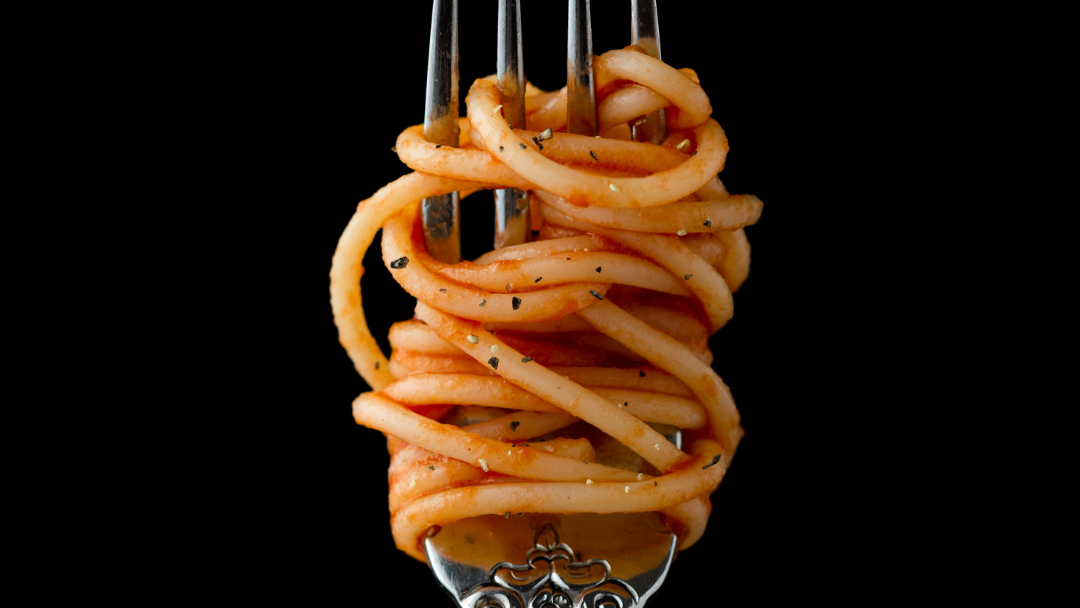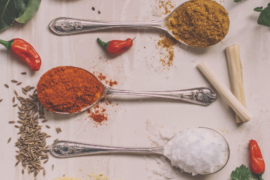MY FRIEND HAD HEARD OF EMPLOYMENT FOR ME WITH AN IRISHMAN WHO HAD SHOT UP IN THR WORLD, a man who owned horsecars and was a Sixth Ward alderman hopeful. He lived on the grand but small Murray Hill, as aristocratic in geography as anything else in a democracy, and like royalty, with a view of the river so he could see his enemies approach, and he needed a woman with quality. My friend saw class in my bearing despite all that starvation and sorrow of coming over, and decided that I was the woman the Irishman needed. She loaned me her second skirt and looked after my boy the morning I went out to speak about it.
All I did at the start was fold napkins. The woman who ran the Irishman’s staff, Mother Boyle, came upon me in the scullery folding them as well as a princess, which convinced her that I could also eat with manners, just what my friend had hoped. For my part, I could tell right away the Irishman was entangled thick in the business of others and every transaction he made coiled the ropes of of his enemies tighter, making poisoning possible. He had become so wealthy he had fallen prey to the fear of his food, especially after some official dinner’s diner died late in the night after three courses of hare, mutton and veal. Since overeating was not thought to be fatal then, but a sign that the cook had done his job well, the Irishman, no stranger to the fisticuff or the police club or the knife, despite his finery, worried he would be next. After the untimely death of this official, the Irishman fired one cook after another, on account of their sauces looking suspicious, until I was hired to taste every course: robin pie, boiled eel, calf’s foot jelly, terrapin with the claws left in. It was his wife who screwed down the idea that his enemies would have their way with his stomach. She was fluffy with finery, fluffy as a just-hatched chick, but very thin in body underneath. I thought the tasting should be her job, but she hardly ate at all, either her own caution being greater than her husband’s, or she was in the throes of fashion and the cinching of the waist, or she ate less so she would never have to stop talking. She and her son called him Sir.
I am self-created, self-taught, and sovereign, he said, his thumbs beneath his suspenders.
You mean you’re an orphan, I said.
He liked me.
The Irishman also liked his beef or else deemed it less poisonous than eggs or fish, at banquets especially when the length of the speeches cooled the food. A slice of a roast neither hot nor cold would always be edible, whereas the spice on a fowl or a sauce around an old rabbit might hide the poison. Fear rose in my own throat after I listened to him and saw how anxious he was, which made any portion he would want to eat tasteless to me for a long time. Why would they hire me if they didn’t think there was poison in something? At home I fortified myself with cinnamon, tannin, garlic, curdled milk and rhubarb so that if poison was to be my affliction, I could fight it.
Are you tired? asked the Irishman while the late dinner speakers drifted off, clearing their throats with their own fears, and him moving closer to me, his tired holding the sound of the bedroom.
I’m hungry, I said, the right answer, for enthusiasm for the work was what he really applauded, a display of vigor from every employee equal to his own.
The Irishman owned an empire of horsecars that drove through Five Points where the roughest of the Irish had haunts. He hired the conductors for those cars if they had their own weapons, and sold them shares of the business to keep them honest. He had the best crew in the whole of the city according to two or three of the newspapers, those to whom he had slipped no less than a fiver. He preferred newspapers more grateful of his donations than honest. No one else could run a horsecar through that region but him, but there were various kingpins with their own interests who kept trying. Epithets against them? He invented them all. He’d spend six hours in a restaurant that had a window to the horsecar barn, muttering these epithets while devouring legs of lamb and mutton-stewed-twice and rabbit-in-wine along with two meat pies for savories. I tasted all of them, and some dishes twice, just in case—together with the claret and port and beer, swills of beer—and when he pushed the table away after completing a negotiation, the china shook and the horsecars would have increased by at least one. Or else the kingpin competition was caught an hour later and whisked away, beaten and broken, in a horsecar designated just for such a deed, or on occasion, the Irishman was why the horsecar suffered overturning.
I’m not saying the Irishman was just, or that all persons might admire his power but he had it and he never hesitated to increase it.
Between courses the waters amused me. They did tricks with colored water showing me how easily someone might fix a drink with something untoward in it, boasting, so many of them, how they’d been offered huge sums to deliver it. They laughed at me if I said I didn’t believe them. The cook pulled a vial of what he called bergamot from inside a capon and said it would kill a whole table if it weren’t for the roasting. That’s how I learned to cook, by watching close how they stuffed and rolled and sauced the beef to make it edible after it had sat around the kitchen for a week, and the butchers’ for another, ageing it for tenderness until it was almost green. Anything could be eaten with proper preparation but anything without was dangerous. When the Irishman stopped on the street to show his interest in the purveyors who sold the oysters from his own ship up the Hudson, I was overcome with fear: he would eat them raw. Before he would down a one of them whole, the oysters had to be opened in front of us, even if the knife slid between the shells as fast as a conjurer’s, then I had to sip the salty liquor without touching the meat.
Love is the same root for both venom and Venus, the Irishman told me before he left to dine at home.
At least I’m not Cleopatra, I said.
It wasn’t as if I didn’t enjoy him.
Every meal was a gamble but I had to taste every one of them, and not just for myself. My son was of the age when the bones showed, the round flesh of the infant put away toward more growth, he had eyes like the empty bottom of a milk pail that spoke better than he could. Sometimes I motioned for food to be tossed out straight away, without being touched, and found it later. Sometimes I chewed air. Sometimes I claimed to fall ill as if poisoned so the Irishman knew I was working, and sometimes I wouldn’t even taste a cut if it had a suspicious cast to it. I sat within view of him at every meal. I tasted even the gravy because he thought it smothered the flavor the most. Of course I had to make my portion tiny, and always drank claret first to clear my palate. Sometimes many courses were ordered and I had to clear my palate more and more often. Sometimes I returned home tipsy and still a bit hungry except for the bag where I’d put the food rejected wholesale, and the little I could hide for my boy in one of my folded napkins. I wasn’t paid much unless you count the bills he laid at the bedside.
One of the entertainments the Irishman ordered after a meal was an Irishman black-faced. The man would shimmy and sing and dance with taps on his shoes, the way both the Irish and the blacks have mixed it up. The blacks in the kitchen and even the free blacks in the audience in all their finery and pomp would laugh and clap with everyone else and talk about how marvelous it was, and the Irish too.
The man’s name was Curley, after his hair. He told me he dreamt the black on his face couldn’t be removed. And then what? he said. Someday they’ll be free, and all of them with us, I said in reply, but he scrubbed and scrubbed after.
He came from the Hunger like I did.
The Irishman paid someone else to fight the War for him, like Cicero, he said. Like most of his countrymen, he knew Cicero from the whispering of a hedge school. He had made money on both sides of the war with his horsecars, everybody was always going somewhere to buy bullets or bread. Afterwards, he said it wasn’t the North or the South but the slaves who won the war for the Union. They wouldn’t work for the Confederacy and for sure the Confederacy was worried about them bearing arms anyway, and who wanted to endanger their property by sending slaves off to fight? The Southerners needed the slaves to slave for the South and thus had only the gentlemen to do their fighting, young lads who were not at all used to putting themselves forward. Yes, it could have been the Irish who helped win the war as well, I’m not denying it, he said to me late one night when he was leaving me. But they are short in thanking the blacks.
My son had a belly on him that the boys he worked with underground envied. Here he comes, suffering the beri-beri from the lack, they cried. Have you been eating the leather on your shoes, or would it be the bread and butter pudding your mother finds for you? Or just scones and apple cakes?
I might be pregnant, I said.
He held up his hands as if his hands put the “might” in me.
It could be, I said, and that would make the danger of poisoning not just mine and my born son’s anymore. I stuck out my jaw on that one, I would not be coaxed. The Irishman, who still liked a late night with me tasted-out and tipsy, found myself and my son a tiny house uptown. It had two spare rooms so I could take in boarders and stay at home. But the baby did not grow right and stopped. Did that have to do with the death of the cook?
Before I left, Mother Boyle swore someone was adding powder, a little at a time, to every serving. The cook didn’t want to taste it, but he had to, making sure that he was right about the spice and the salt. He always hated me, having to do over whatever I said, but was glad enough that I worked. With me, he hadn’t had to do the tasting and thus did not prepare for possible poison, eating the cinnamon and so forth every day in fortification the way I had. After I gave up the position, he sickened and died after so much of the little at a time.
Word of the cook’s demise quite disturbed the Irishman. The question of my worth was answered—I did not tell him what I suspected about the baby—but it wasn’t easy to find my replacement, at table or bed. He grew thin. When he ate, he ate from the plate’s of his acquaintances, his business associates, his enemies. He kept a dog at his feet. He took on an old woman, with as much lace in her bonnet as wrinkles in her cheeks, but she spit in her hand and dirtied the lace with slop from her lips before the second course was taken away.
It weren’t but a year after the cook died that the Irishman turned lunatic and starved, taken in by voices that doomed him at the table. It might have happened anyway, with him going on about the ghosts of the dead from the war that he didn’t fight. He only ate free when we were together. He hollered that I was his mother but what he meant was he trusted only me after all my years with him. It was even later that night of his hollering when he whispered that he’d seen a woman point at a man and say Dead, and the man was dead by dinnertime. Then the Irishman pushed back his chair, walked around the table, broke the mirror that had caught him telling the story into. Bring me an Alaska, he told the waiter to show he was fine. He knew I liked the taste of the baked ice, though he seldom ordered it himself. He was always suspicious of dessert, the wag that makes the dog, but it was a bullet through a window of the restaurant after the dessert came that took him. Whose didn’t really matter, it had always been coming.
You were certainly not my mother, he said at the last, with me holding him bleeding all over the meringue, while his wife was being fetched. He stained me from lap to legs with his emptying blood and it was then I knew it would be quite a lot more than new shoes at Christmas that I would miss.
I put a drop of his blood on my tongue.
TERESE SVOBODA’s most recent book of fiction is Great American Desert (Mad Creek Press, 2019). Anhinga published her 19th book, Theatrix: Poetry Plays, this March.
Like what you’re reading?
Get new stories or poetry sent to your inbox. Drop your email below to start >>>
OR grab a print issue
Stories, poems and essays in a beautifully designed magazine you can hold in your hands.
GO TO ISSUESNEW book release
China Blue by Catherine Gammon. Order the book of which William Lychack Jeffries calls “a fiery declaration of all that is inexpressible about desire and loss and the need to find a home in a world in which even the most solid and real of things feel often less than completely solid or real.”
GET THE BOOK



